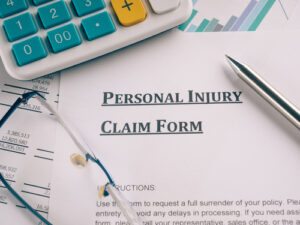Common Questions Concerning Fault in an Accident Answered by Erie Personal Injury Lawyers
December 28, 2018
 If you or a family member was seriously injured in a preventable accident, you are probably feeling overwhelmed with uncertainty and have a myriad of questions flooding your mind about what steps are needed to move forward and obtain financial restitution. Below is a set of frequently asked questions concerning accident cases and, most importantly, direct answers to those questions.
If you or a family member was seriously injured in a preventable accident, you are probably feeling overwhelmed with uncertainty and have a myriad of questions flooding your mind about what steps are needed to move forward and obtain financial restitution. Below is a set of frequently asked questions concerning accident cases and, most importantly, direct answers to those questions.
How is Fault Legally Proven in an Accident Case?
This is a very common question with an answer that may surprise you – in the realm of personal injury law, you don’t need to legally “prove” anything, especially when you are attempting to negotiate with an auto insurance claims adjuster. Many people associate legal “proof” with popular television shows like Law & Order and the need to prove something “beyond a reasonable doubt.” However, this standard is not applicable for accident cases filed in civil court. The governing standard for accident claims is “preponderance of the evidence.” Basically, this means there needs to be a sufficient amount of evidence for someone to believe that your recitation of the incident was more likely true that not. Put it another way, you need have enough evidence to support a 50.1 determination that the other party was at fault for causing your harms and losses.
For example, in an auto accident injury case, you do not need to present scientific evidence or precise measurements of tire marks. All you, or your Erie personal injury lawyer, needs to prove is that the other motorist hit you from the rear or turned in front of your vehicle.
Can I Obtain Financial Restitution for my Bodily Injuries if the Accident was Partly my Fault?
Yes. In Pennsylvania, a personal injury claim is governed under comparative negligence. Basically, this means that you can still receive financial restitution from someone who partly caused the accident through their negligent actions, or inactions. However, the amount of your financial award would be reduced by your corresponding percentage of negligence. For example, if you were deemed 30 percent at fault and a defendant was 70 percent at fault, then you could still obtain a monetary recovery, but that recovery would be reduced by 30 percent.
One unique aspect of Pennsylvania law is that, in order to obtain a financial recovery, you need to be less at fault than the other party. This means if a jury determines you were 70 percent at fault for the accident and the other party was only 30 percent, you would not be able to obtain a financial award for your harms and losses.
What Exactly is Negligence?
If you hire an Erie personal injury lawyer, you will likely hear the term “negligence” bandied about quite often. This is a legal term used to describe careless or reckless behavior that proximately caused another party to suffer harm. For example, someone is considered to be negligent if they failed to stop at a red light and, as a result, t-boned your vehicle.
Contact an Erie Personal Injury Lawyer to Discuss Your Car Accident Case in Pennsylvania
Did you or a loved one sustain serious injuries due to a motor vehicle accident in Pennsylvania? Don’t let the medical bills pile up while you wait for the negligent party, or their insurance company, to do the right thing. Right now, you need an aggressive personal injury attorney on your side, fighting to get you the compensation you need, want, and deserve. The skilled attorneys at Purchase, George & Murphey represent clients injured because of a car accident in Erie, Millcreek, Meadville, Harborcreek and throughout Pennsylvania. Call 814-273-2010 or fill out our online contact form to schedule a free consultation about your case. We have an office conveniently located at 2525 W 26th St. Erie, PA 16506 as well as offices in Meadville and North East, PA.
The articles on this blog are for informative purposes only and are no substitute for legal advice or an attorney-client relationship. If you are seeking legal advice, please contact our law firm directly.